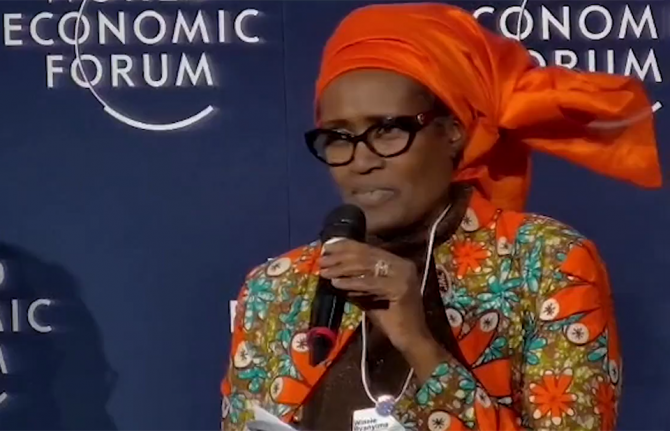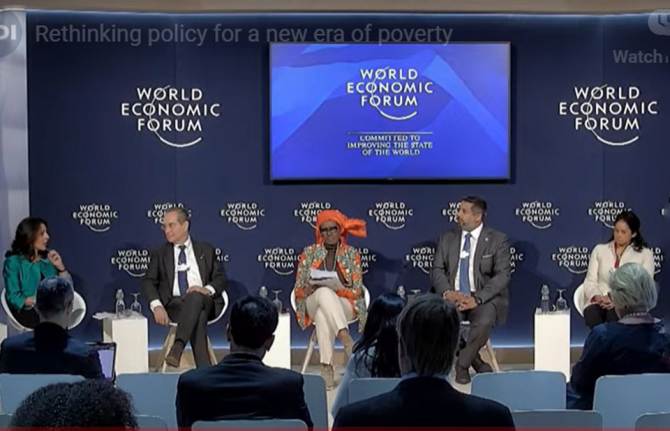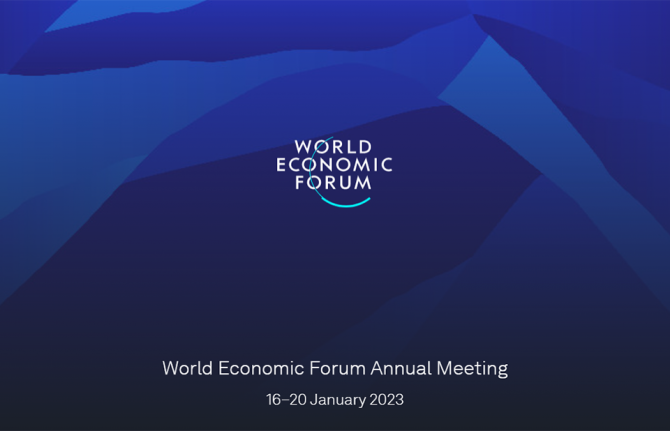



Press Statement
United Nations Under-Secretary-General calls on leaders to address the debt crisis that is crushing developing countries
27 January 2023 27 January 2023GENEVA, 27 January 2023—The Executive Director of UNAIDS and Under-Secretary-General of the United Nations Winnie Byanyima is calling on world leaders to address the unsustainable external debt service burdens of developing countries which are widening inequalities and undermining the health and livelihoods of millions of people.
Rising interest rates, a strong dollar and inflation are depleting budgets for education, health, including for HIV, and social services in highly indebted developing countries.
“Low-income countries are spending up to four times more on debt repayments than they are on health,” said Ms Byanyima, addressing global leaders at the World Economic Forum in Davos. “In 2021, almost half of all developing countries cut health spending and about 70% cut spending on education.”
Efforts to end AIDS are also being impacted. In 2021, UNAIDS saw that globally the number of new HIV infections dropped only 3.6% from 2020, the smallest annual decline since 2016. The impact was also felt in funding for HIV. Donor funding for the AIDS response was 10% lower in 2020 that it was in 2010 and domestic financing fell 2% for a second year in a row in 2020. UNAIDS estimates that continuing on the current trajectory would lead to 7.5 million AIDS-related deaths by 2030, and millions of new HIV infections.
In 2021, at the height of the COVID-19 crisis, low- and middle-income countries transferred almost US$ 1 trillion in debt service to external creditors. The International Monetary Fund calculates that over 60% of low-income countries are now in debt distress or high risk of it—22 of these countries are in Africa, the continent with the highest burden of HIV.
“COVID-19 proved to us that our health and our economies are locked together,” said Ms Byanyima. “Global leaders must urgently agree on a comprehensive multilateral legal framework to restructure the debt of developing countries. This catastrophic debt crisis is claiming lives and locking millions of children out of the future they deserve.”
She argued that health, education, social protection and climate action should be recognised as global public goods that every government contributes to. “We are becoming wider and wider apart with a global economy that extracts from the weakest and gives to those with the strongest elbows,” said Ms Byanyima.
At a time when debt repayments are crippling health budgets, rich countries are putting the profits of pharmaceutical companies, banks, private lenders and financial institutions ahead of people’s lives in the global south. Almost three years into the COVID-19 pandemic and rich countries are still preventing developing nations from producing generic COVID-19 tests and treatments.
“Without an urgent rethink, the world could sleepwalk into a convergence of health and financial crises that could crush developing countries,” said Ms Byanyima.
UNAIDS is concerned that intellectual property barriers continue to deny millions of people access to lifesaving health technologies. Long-acting medicines for HIV prevention and treatment that are today available in the global North, are still beyond the reach of the developing countries most affected by HIV.
At a time when debt repayments are crippling global south health budgets, UNAIDS is calling for the pharmaceutical company ViiV to reduce the price of long-acting HIV medicines and allow all developing countries to produce generic versions. UNAIDS is also calling on World Trade Organization member countries to ease intellectual property rules for COVID-19 tests and treatments.
UNAIDS
The Joint United Nations Programme on HIV/AIDS (UNAIDS) leads and inspires the world to achieve its shared vision of zero new HIV infections, zero discrimination and zero AIDS-related deaths. UNAIDS unites the efforts of 11 UN organizations—UNHCR, UNICEF, WFP, UNDP, UNFPA, UNODC, UN Women, ILO, UNESCO, WHO and the World Bank—and works closely with global and national partners towards ending the AIDS epidemic by 2030 as part of the Sustainable Development Goals. Learn more at unaids.org and connect with us on Facebook, Twitter, Instagram and YouTube.
